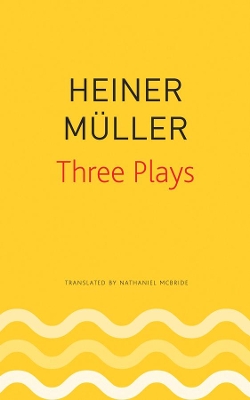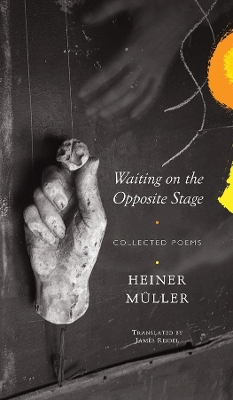German List
2 total works
Despite being widely acknowledged as one of the most important German dramatists since Bertolt Brecht, Heiner Müller (1929–95) still remains relatively unknown in the English-speaking world. This collection of plays aims to change that, presenting new translations and opening up his work to a larger audience.
Collected here are three of his plays—Philoctetes, The Horatian, and Mauser—whose poetic texts evidence the influence of Shakespeare, classical Greek tragedy, and avant-garde political theater on his works. Together they constitute what Müller called an "experimental series," which both develops and critiques Brecht’s theory of the Lehrstück, or "learning play."
Based on a tragedy by Sophocles, Philoctetes dramatizes the confrontation between politics, morality, and the desire for revenge. The Horatian uses an incident from ancient Rome as an example of ways of approaching the moral ambiguity of the past. Finally, Mauser, set during the Russian civil war, examines the nature and ethics of revolutionary violence. The plays are accompanied by supporting materials written by Müller himself, as well as an introduction by Uwe Schütte that contextualizes the plays and speaks of their continued relevance today.
Collected here are three of his plays—Philoctetes, The Horatian, and Mauser—whose poetic texts evidence the influence of Shakespeare, classical Greek tragedy, and avant-garde political theater on his works. Together they constitute what Müller called an "experimental series," which both develops and critiques Brecht’s theory of the Lehrstück, or "learning play."
Based on a tragedy by Sophocles, Philoctetes dramatizes the confrontation between politics, morality, and the desire for revenge. The Horatian uses an incident from ancient Rome as an example of ways of approaching the moral ambiguity of the past. Finally, Mauser, set during the Russian civil war, examines the nature and ethics of revolutionary violence. The plays are accompanied by supporting materials written by Müller himself, as well as an introduction by Uwe Schütte that contextualizes the plays and speaks of their continued relevance today.
With poignancy and skill, Heiner Müller’s Waiting on the Opposite Stage comprises a personal retelling not only of post-war German history but also of the communist spirit and pathos that gave rise to the Berlin Wall and its fall. The overarching irony of this book is that the author witnessed the rise of his fame due to his country’s ruin. Müller, whose creative life spanned the existence of East Germany, is best known today for his play Die Hamletmachine, which established him as the successor to Bertolt Brecht and gained him international recognition as a post-dramatic playwright. Waiting on the Opposite Stage reveals Müller as a poet, which he chiefly was during his time.
Arranged in four parts, this book collects over 400 poems written from 1949 to 1995, including a section with the poet’s unpublished drafts and fragments. With helpful notes and an extensive afterword on Müller’s life and work, James Reidel has carefully preserved the layout of the original German poems with his translations. In verse and prose poetry, this important collection ranges from paeans to Stalin to Müller’s self-awareness of his own human scale and fame to his final eloquent months, when his creative life was cut short by cancer.
Arranged in four parts, this book collects over 400 poems written from 1949 to 1995, including a section with the poet’s unpublished drafts and fragments. With helpful notes and an extensive afterword on Müller’s life and work, James Reidel has carefully preserved the layout of the original German poems with his translations. In verse and prose poetry, this important collection ranges from paeans to Stalin to Müller’s self-awareness of his own human scale and fame to his final eloquent months, when his creative life was cut short by cancer.

